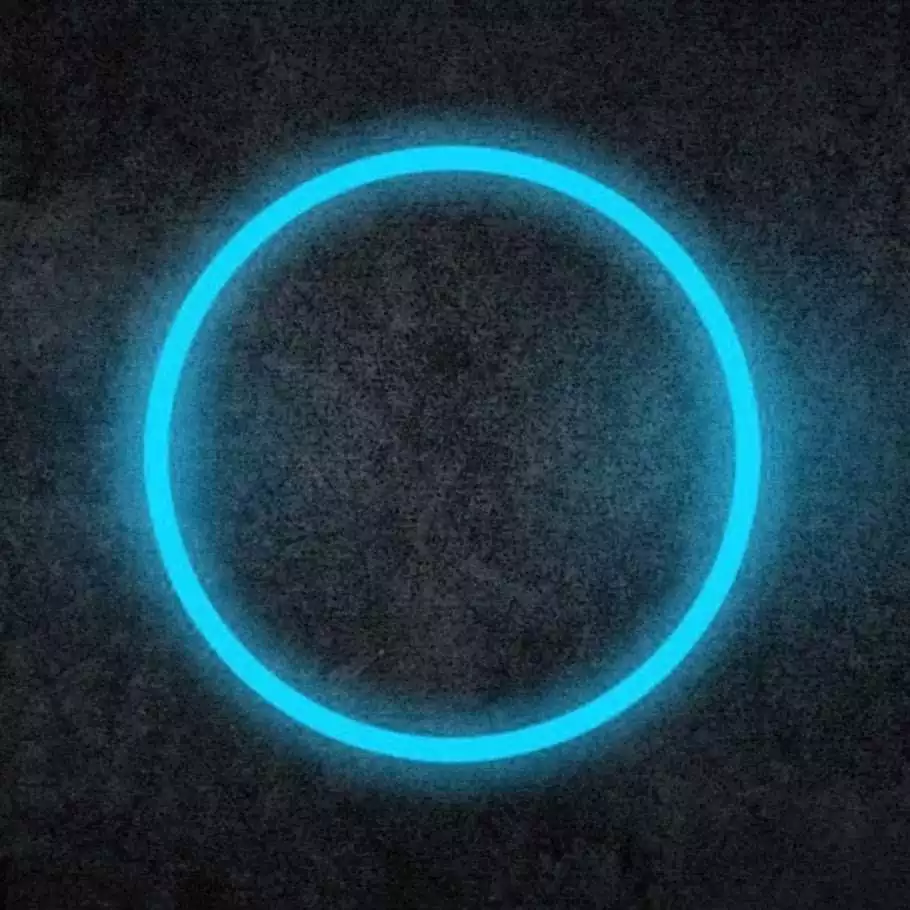
 #
#I can hear this image
I scrolled slow and mentally imagined it.
Just one small hitch: if there was an atmosphere in space dense enough to carry sound, the earth would burn up in minutes.
And apparently it would be quite loud during the burning!
Well yeah, I wouldn’t expect people and other animals to be quiet while the entire planet is burning up.
JACKHAMMERS I TELL YA!!
The planet could simply exist further back from the sun where the R^2 property renders the energy more diffuse.
Ah, so this isn’t tinnitus, I can actually hear the sun!
That or you’re standing next to a jackhammer.
Oh hey, thanks! Been hearing it for years, turns out I just never look left!
I wish they’d give me my driver’s license back…
I’m not sure what kind of jack hammer you’ve used, but they sound nothing like Tinnitus.
Nah. It starts out like THUD! THUD! and then slowly after a couple minutes of warming up, that goes all muffled and it becomes that familiar high-pitched ringing noise.
Mine is more of a mixture of static and a hum. Maybe what tingly would sound like.
I imagine it would be kind of like the hypnotoad sound
Obey the giant burning floating orb
All hail Almighty Ra!
!aom@lemm.ee leaking
Nah my mind went to Stargate
I’ll admit I’ve never watched Stargate, but I thought it was scifi? I didn’t realise it engaged with Egyptian mythology.
It heavily features a race of creatures that have posed as gods throughout most of human history, so it touches on almost all the mythologies. Egyptian mythology features very heavily, with Ra being the first of this alien race that the series engages with.
Oh neat. I should get around to watching it.
Evolution would say: nope. And the surviving class would be deaf. No one is able to accept a permanent jackhammer.
Evolution might just block out certain frequencies. No need to go completely deaf.
Like the frequency dying plants make? Makes sense. Looks like evolution could already did this in the past.
I’m sorry what the fuck now
alright that’s it, I’m never eating plant based food again.
What… What’s let to eat then?
meat, exclusively
Fungi.
Wait you mean you guys can’t hear that?
Thanks for making me aware 🙇
Or evolve the ability to echolocate with the reflections of the background noise. Like our eyes does with light.
the sheer scale of the universe makes me want to get into astronomy.
Oh boy! YouTube suggestions for you!
- Astrum
- PBS space time*
- scishow space
- History of the universe******
- Coolworlds*
- Arvin Ash
- Paul Sutter*
- Startalk
- Kurzgesagt*
My favs are starred
deleted by creator
He’s a wonderful person :)
I guess I have a new one!
Astrum, history of the universe and PBS spacetimes content is soooo good they absolutely get money from me regularly and I hope they stick around for decades to come!
Yes. HOTU is the best channel I swear. They are so professional and so polished.
i’ll definitely have to come back and check some of these out sometime.
Do it! It’s a fantastic science, with ever expanding horizons! That being said, if working in the field is a bit too much, amateur astronomy is a fabulous and friendly hobby - if a bit expensive
It’s a fantastic science, with ever expanding horizons!
Pun appreciated.
That’s a stellar joke.
It’s out of this world funny.
it does sound like a fascinating field, but im not sure there’s much in it for me outside of a hobby. I guess i need to look into what the field actually does lol.
If the sun were to go out it would take 8 minutes for the light to stop but 13 years for the sound to stop.
Kind of like when you kill an enderman. 🤔
On the plus side, if we evolved on Planet Sunblaster then our hearing would have evolved to either dial down the volume or filter it out completely.
I mean we hear the sound of our blood rushing through the veins of our ears at all times, but our brain filters it out. That the “sound of the ocean” you hear when listening into a conch, it just amplifies the bloodwaves. Other fun stuff our brain does: Our eyes are actually perceiving the world upside down and with a blind spot right in the middle.
The way senses are processed is almost unbelievable.
When your eyesight is partially damaged (by a laser, for example), your brain will fill in the spots, so you won’t even realise there’s a problem until it’s too late (too much damage to cover up).
As the above stated, there’s a blind spot (although I don’t think it’s smack in the middle) - there are tests online you can try to ‘see’ it.
Your sight also automatically enhances objects it thinks are important, and will predict movementsand patterns, e.g. a baseball you’re trying to hit.
There’s also no colour in peripheral vision, although the brain does colour it in.Oh, didn’t know the one with no color in peripheral vision, that’s fun!
Or perhaps we’d use the reflected soundwaves to navigate with echolocation much like we use reflected light waves to see.
You wouldn’t, of course. Hearing, the way we hear, in such an environment would be useless. We wouldn’t have evolved that. This is like saying “ultraviolet radiation from the sun would be everywhere, all the time, can you imagine?” It is everywhere all the time, but as such it isn’t a useful sense to possess, so we don’t.
This also makes some very weird assumptions about what the sound would be like. If space were a medium sound could travel through then it would–like all mediums capable of carrying a sound wave–alter the wave in many ways. Intensity, frequency, etc. But since we don’t know what kind of medium that would be, and since the comment doesn’t posit any particular medium, we don’t know what the sound would sound like or even how loud it would be.
I assume that this thought experiment posits a space filled with the same average density of particles found at ground level on Earth. Obviously such a thing is nonsensical, but it serves to illuminate one aspect of the raw power of the Sun that we ignore, because we’re insulated from it by 93 million miles of vacuum.
By your logic, light isn’t a useful sense to possess since it’s everywhere all the time thanks to sunlight and moonlight, is that correct?
Actually, since ultraviolet radiation and light are both electromagnetic waves, they should be treated the same, shouldn’t they? It’s as if there could be a different reason why we can detect one but not the other.
Yes, and some animals (mostly birds iirc) do see UV. Boring brown/black birds aren’t so boring in UV. I don’t know the evolutionary pressure necessary for UV, but it could have developed. Red, for instance, is believed to have been useful for us to pick out berries. Wolves, being carnivorous, wouldn’t necessarily need it, so see in yellow blue… or so I read as a theory a while ago.
Bees see UV too, it supposedly helps them navigating around flowers.
If the sound is more of a loud hiss, you might find that echolocation can work very well. Much like our eyes collect available light bouncing off surfaces, similar techniques can be used with sound.
When I was little, I thought the sound of cicadas came from the sun.
They always did seem to get louder when a wave of heat would roll over the area.
It does. We can’t hear it, but it does.
Well, I think technically it doesn’t. There’s no medium to propagate pressure waves, so at no point would the mechanics of sound actually exist, I would think.
The sun itself is a medium that can propogate sound waves. Someone standing on the Moon could equally well make the case that there is no medium to propagate pressure waves from the Earth, so the Earth must not make a sound.
Aye, true. Though I would consider that case different (slightly, but not fundamentally wrt waves existing) from the sun because on earth there are atmospheric sound waves that just don’t reach out to the moon. But I hadn’t thought of the possibility of waves going into the sun, so there would be existing waves there too. More akin to making a sound on the moon by vibrating the moon itself I suppose.
Edit: and really, I’m talking out of my ass lol. There could very well be gases or some such to vibrate around the sun, even coming out of the sun and carrying vibrations, but I don’t know enough.
The sun has an atmosphere so there are soundwaves coming out of it. It’s actually all one big atmosphere getting thinner and thinner as you go out just like ours.
That makes me wonder where the sun ends and it’s atmosphere begins! Stars are weird.
Technically there is no boundary, it’s atmosphere all the way in. But what we might call the “surface” is the photosphere. That is where the density becomes “low” (read not insanely high) enough that light can escape in a free path.
imagine … hearing the jackhammer scream of our star
Sounds are a form of energy. If we were bombarded by sound waves for the entire existence of the planet, I assume life would have adapted to harness this abundant power source and made it instrumental to how we survive and thrive.
instrumental
Heh.
Noone would live for longer than a few weeks after the sun went out.
Noone is one tough mf. I wish more of us could be like him.
Noone rides the alot.

My team. 🤘🏽
I like this alot
That’s great, thank you for that
Nah, I’m different tho
Mama says.
Okay just to be clear. The sun not only went out. The sun will explode and we too.
A lot of the suppositions are done with impossible to happen stuff, like the sun literally disappearing, or collapsing into a blackhole with no added mass (a sun mass blackhole would be stable, but I don’t know how one could be created).
If it disappeared, then we’d still feel even gravity for those 8 mins, as the effect of gravity propagated at the speed of light. If it somehow magically became a black hole, we’d still orbit it the same even after 8 mins, but losing all the head would eventually kill us.
The expected explosion wouldn’t be what makes the earth uninhabitable either. The sun increases in luminosity by ~1% every 100 million years, and it’s estimated that between 700 million and 1.5 billion years the surface of the planet will be too hot for liquid water. An astronomer also says photosynthesis would be impossible in 500-600 million years.
This seems like bullshit to me. I don’t think the noise level of the sun is something we have solid data on
The sun apparently vibrates, but at frequencies too low to hear anyway. https://www.nasa.gov/solar-system/sounds-of-the-sun/
I traced down this loud sun theory, and it comes from a post from reddit of a guy who did the maths and obtained a volume level of 100dBA, although with one bold assumption, which is that the sound of the sun would propagate just as well as its light, which would absolutely not be true if there was an atmosphere between the sun and the earth. This reddit post has then been cited in a few articles. Sauce for anyone interested https://www.reddit.com/r/askscience/comments/33xuxu/comment/cqpsap8/
A bullet fired from a gun goes more or less at Mach 1, correct?
It’s thirteen years to the sun at the speed of a bullet?Spacecraft towards Mercury, or the Parker Solar Probe go much faster than that, take a few years to make it there, but they are doing so picking up speed in flybys of first Earth, then Venus, then Mercury, in several, ever tighter orbits.
It’s both fun and illuminating to try and visualize these things in new ways. In this case, from the viewpoint of a bullet.
deleted by creator














